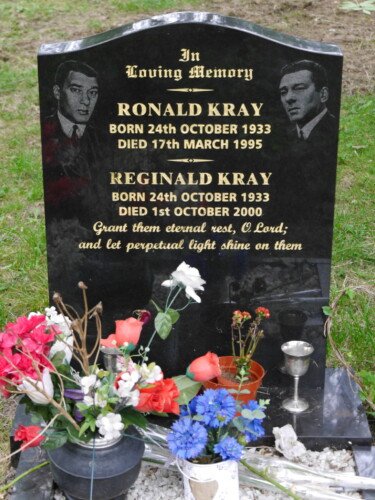Jack McVitie: The South London hit man who saw the downfall of the Krays
The longest murder hearing in British criminal history ended on March 4, 1969, with the downfall of Britain’s infamous gangland brothers – the Kray twins.
Ronald and Reginald Kray were sentenced to life in prison after being found guilty of murder of Jack ‘The Hat’ McVitie at the Old Bailey.
Jack The Hat was born on April 19, 1932, in Battersea. The nickname came from the trilby he wore, supposedly to cover up his hair loss.
By the 1960s McVitie became a drug trafficker and was associated with the Krays, working as an enforcer and a hitman in their gang, The Firm.

Despite his job, which would require a steady hand and sharp mind, McVitie was himself heavily dependent on drugs.
In 1967, Ronnie Kray paid McVitie £500 in advance to kill an old friend and business partner, Leslie Payne, promising he would give another £500 when the job was done.
The planned hit came amid fears that Payne was about to inform the police of the Krays’ criminal activities.
Arriving at Payne’s home, McVitie was met instead by Payne’s wife, who told him her husband was not home.
McVitie supposedly replied “alright then” and left. He kept Ronnie’s money for himself. A poor misjudgement that would lead, in part, to his murder.
After the failed hit, McVitie’s drink and drug use worsened. And so did his decision making.
He starting to wonder around London. He stayed in pubs late into the night and boasted about how he was going to kill the infamous brothers.
Soon the Krays got wind of McVitie’s drunken threats.

On October 29, 1967, McVitie was invited to a party in Evering Road, Hackney, attended by several of his underworld associates and their families.
What McVitie didn’t know was that the Krays had secretly arrived early and had started clearing away guests.
Reggie Kray’s initial plan was to shoot McVitie upon entry, but his gun jammed.
No stranger to brutal and violent methods of murder, Reggie pulled out a knife and stabbed McVitie repeatedly in the face, chest and stomach, while his brother held him down.
The twins fled the scene and McVitie’s body was wrapped up in bed sheets to be taken across the river to South London, where it was dumped outside St Mary’s Church, in Rotherhithe by Tony and Chris Lambrianou, Keith Askem and Ronnie Bender – all minor members of The Firm.
When the Krays discovered the whereabouts of the corpse, they ordered it to be moved.
McVitie’s body was never recovered – although it has been suggested that it was thrown over the side of a boat into the sea at Newhaven in East Sussex.
McVitie’s murder played a prominent part in the downfall of the Kray twins.
At the Old Bailey in 1969, the twins, their older brother Charlie and six of their seven co-defendants were found guilty of murder.

The verdicts, all of which were unanimous, found Ronald, 34 at the time, guilty of the murders of Jack “The Hat” McVitie as well as a book master’s clerk, and George Cornell.
The court was told how Ronald shot Mr Cornell dead in front of customers at the Blind Beggar pub in Whitechapel in 1966 for calling him a “fat poof”.
Reginald was also found guilty of murdering McVitie and of being an accessory to Cornell’s murder.
Christopher Lambrianou, his brother Anthony Lambrianou, and Ronald Bender were found guilty of murdering McVitie. Charlie Kray, Frederick Foreman and Cornelius Whitehead were all found to be accessories to the murder.
Anthony Barry was the only defendant spared. Found not guilty of McVitie’s murder, he was discharged.
About 60 plainclothes policemen kept a 24-hour watch on the jury throughout the trial, following them home from court and even into public houses.
In 1990, a full-length biographical film entitled The Krays was released, featuring actor Tom Bell as McVitie.
In the 2015 film about the Krays, Legend, with Tom Hardy taking on the role as both Kray brothers, McVitie is played by Sam Spruell.
Pictured top: Photograph of Reginald Kray (second from left) taken in the months leading up to his trial which resulted in him and his brother Ronald being sentenced to life imprisonment (Picture: Wikimedia Commons)
